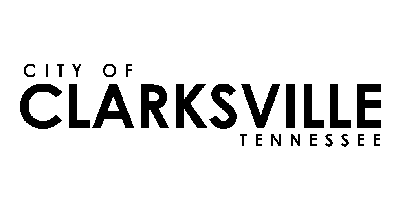-
Description
-
GENERAL STATEMENT OF JOB This is the second of five levels in the Parks and Recreation series. Incumbent responsibilities include supervising one full-time staff member and several part-time and seasonal staff members; enforcing rules and policies, monitoring a budget, maintaining records, preparing operational reports, inspecting the facility, scheduling the use of the facility, and establishing and monitoring maintenance schedules. Incumbents also determine recreational offerings and plan, coordinate, implement, and monitor recreational activities.
***PLEASE NOTE: CERTIFIED PARKS AND RECREATION PROFESIONAL (CPRP) CERTIFICATION PREFERED. THIS POSITION WILL REMAIN OPEN THROUGH JANUAR 14, 2025, OR UNTIL FILLED.***
.
-
Example of Duties
-
SPECIFIC DUTIES AND RESPONSIBILITIES
Essential Functions:
Supervises seasonal and part-time staff to include prioritizing and assigning work; conducting performance evaluations; ensuring staff are trained; ensuring that employees follow policies and procedures; maintaining a healthy and safe working environment; and making hiring, termination, and disciplinary recommendations. Coordinates the day-to-day activities of assigned recreation center, which includes determining recreation offerings within established programs, prioritizing projects, and assigning tasks, monitoring the work of subordinates, and responding to citizen requests and complaints. Monitors and inspects facilities which may include scheduling facility reservations, establishing and monitoring facility maintenance schedules, and performing related duties. Assists with preparation and administration of recreation center operational budget. Prepares cost estimates for budget recommendations; submits justifications for budget items; submits invoices for payment and monitors expenses. Prepares a variety of operational records and reports. Performs other duties of a similar nature or level. Performs other related work as required.
-
Typical Qualifications
-
MINIMUM EDUCATION AND TRAINING Education and Experience
High school diploma or GED equivalent. Three (3) years of experience in recreational programming. An equivalent combination of education and experience sufficient to perform the job's essential duties.
License and Certifications
Possession of a valid driver's license. Certified Parks and Recreation Professional preferred. First Aid, CPR and AED certified within 9 months of hire.
-
Supplemental Information
-
MINIMUM QUALIFICATIONS AND STANDARDS REQUIRED Knowledge, Skills, and Abilities: Knowledge of:
Supervisory principles. Recreational program planning principles and practices. Applicable age-appropriate activities, programs, and materials. Basic budgeting principles. Event planning techniques. Customer service principles. Recordkeeping practices and principles. Computers and related software applications.
Skill in:
Supervising, recruiting and evaluating employees. Prioritizing and assigning work. Overseeing recreation program sites, facilities, and equipment. Planning, developing, supervising, and managing programs and/or events. Providing customer service. Monitoring budgets. Developing promotional materials. Preparing and maintaining records and reports. Using a computer and related software applications. Communication, interpersonal skills as applied to interaction with subordinates, coworkers, supervisors, the public, etc. sufficient to exchange or convey information and to give and receive work direction.
Physical Requirements: The work is light work which requires exerting up to 20 pounds of force occasionally, and/or up to 10 pounds of force frequently to or constantly to move objects. Additionally, the following physical abilities are required:
Balancing: Maintaining body equilibrium to prevent falling while walking, standing, or crouching on narrow, slippery, or erratically moving surfaces. The amount of balancing exceeds that needed for ordinary locomotion and maintenance of body equilibrium. Climbing: Ascending or descending ladders, stairs, scaffolding, ramps, poles, and the like, using feet and legs and/or hands and arms. Body agility is emphasized. Crawling: Moving about on hands, knees, hands, and feet. Crouching: Bending the body downward and forward by bending leg and spine. Feeling: Perceiving attributes of objects, such as size, shape, temperature, or texture by touching with skin, particularly that of fingertips. Fingering: Picking, pinching, typing, or otherwise working, primarily with fingers rather than with the whole hand as in handling. Grasping: Applying pressure to an object with the fingers and palm. Handling: Picking, holding, or otherwise working, primarily with the whole hand. Hearing: Perceiving the nature of sounds at normal speaking levels with or without correction. Ability to receive detailed information through oral communication, and to make the discrimination sound. Kneeling: Bending legs at knee to come to a rest on knee or knees. Lifting: Raising objects from a lower to a higher position or moving objects horizontally from position-to-position. It occurs to a considerable degree and requires substantial use of upper extremities and back muscles. Mental Acuity: Making rational decisions through sound logic and deductive processes. Pulling: Using upper extremities to exert force to draw, haul or tug objects in a sustained motion. Pushing: Using upper extremities to press against something steady to thrust forward, downward, or outward. Reaching: Extending hand(s) and arm(s) in any direction. Repetitive Motion: Substantial movements (motions) of the wrist, hands, and/or fingers. Speaking: Expressing or exchanging ideas by means of the spoken word including the ability to convey detailed or important spoken instructions to other workers accurately and concisely. Standing: Particularly for sustained periods of time. Stooping: Bending body downward and forward by bending spine at the waist. It occurs to a considerable degree and requires full motion of the lower extremities and back muscles. Talking: Expressing or exchanging ideas by means of the spoken word including those activities in which they must convey detailed or important spoken instructions to other workers accurately, loudly, or quickly. Visual ability 1: sufficient to perform an activity like preparing and analyzing data and figures; transcribing; viewing a computer terminal; and/or extensive reading. Visual ability 3: sufficient to determine the accuracy, neatness, and thoroughness of the work assigned or to make general observations of facilities or structures. Visual ability 4: sufficient to operate motor vehicles and/or heavy equipment, both day and night. Walking: Moving about on foot to accomplish tasks, particularly for long distances or move from one work site to another.
|
 City of Clarksville
City of Clarksville $52,347.00 Annually
$52,347.00 Annually
 please see the city of clarksville's benefits page for applicable benefits information.
please see the city of clarksville's benefits page for applicable benefits information.


 Jan 07, 2025
Jan 07, 2025 

